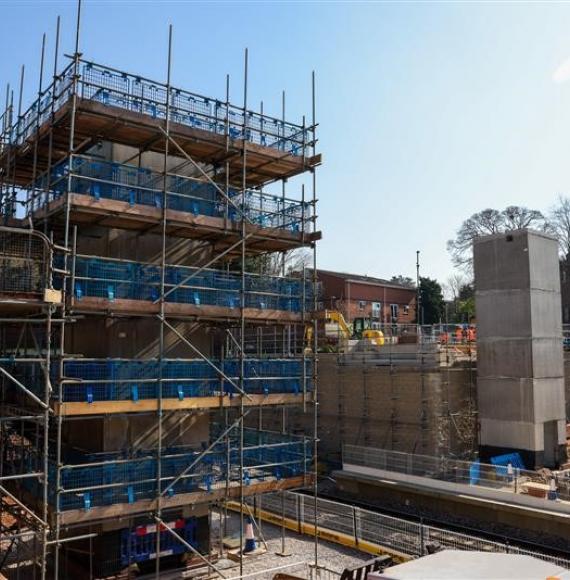As part of London Climate Action Week, HS2 Ltd have unveiled a pioneering project to use hydro-treated vegetable oil (HVO) for the first time in the UK in a piling rig on an HS2 site in London.
It will be the largest engine to ever trial the use of HVO, with HS2’s contractor undertaking a three-week trial to find more eco-friendly fuels to use on construction sites for its piling activities.
HS2 has challenged its contractors to reduce emissions by 50% against construction baselines, as part of efforts to reduce carbon emissions.
This newest trial will use “Green D+”, a low emission, high performance HVO fuel, to power all site plant and equipment.
Since work began in 2017 across its London construction sites, HS2 has looked to introduce a wide range of decarbonisation solutions. This includes the introduction of solar and LPG-powered cabins, low emissions innovations, electric machinery and alternative biofuels.
Similarly, now main works construction is beginning, HS2 and its contractors are introducing further innovations, including Earth Friendly Concrete (EFC), hybrid and fully electric machinery, battery powered lighting, hydrogen power and renewable energy as a replacement for diesel power generation, which all cut carbon and improve local air quality on and surrounding HS2 sites.
The three-week HVO trial started on June 15, 2021.
Currently operating on the HS2 site near Euston, the piling rig is being monitored every two days, with HVO fuel being gradually added to red diesel - the fuel traditionally used in the equipment. By the end of the trial, the intention is for the rig to have been running purely on HVO fuel for two weeks, with continuous monitoring.
If there is no loss of power to the rig, or any other fuel damage, then the piling rig will be designated for use solely with the biofuel.
Malcolm Codling, Project Client, for HS2 Ltd, said: “We are pleased to be at the forefront of environmental innovations in construction, and be able to take steps to reduce carbon emissions in this way.
“This trial isn’t just important for the site it is being done on, or for the HS2 project as a whole – it is critical for the whole construction industry in the UK who will be able to adopt more environmentally friendly fuels in the future.”
Following the trial period using HVO in the piling rig, the findings will be analysed, and a report will be produced by Brighton University.
















